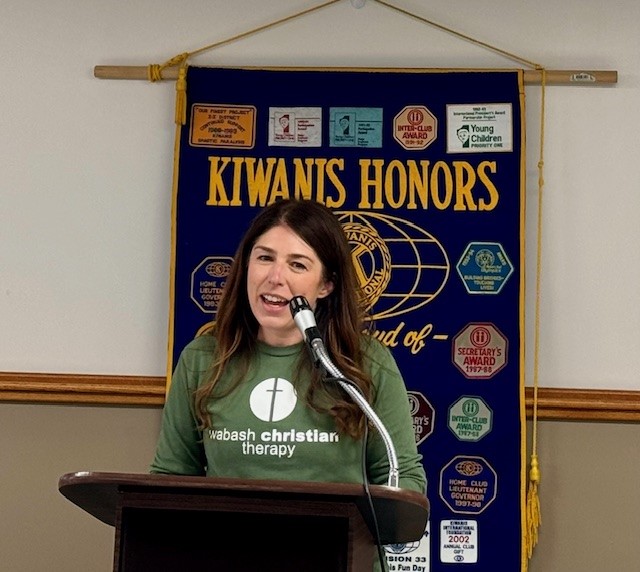
It’s National Parkinson’s Awareness Month and with that in mind, Jenny Mae Blankenberger, though you may remember her as Bingman, says her passion, speech therapy is an important treatment for patients. Scientists believe a lack of dopamine causes Parkinson’s. That deficit is directly related, they say, to a disorder of nerve cells in a specific part of the brain that produces the neurotransmitter. Initially diagnosed in 1817 by James Parkinson and originally called the shaking palsy, Blankenberger says 1 in 100 adults over the age of 60 are diagnosed with Parkinson’s.
“There are more than 10 million people worldwide struggling with Parkinson’s Disease. So it’s a disease that’s becoming more prevalent and common as we’re living longer. We know that age is one of the causes of Parkinson’s. People are not typically diagnosed until after the age of 60.”
She says 90% of people with Parkinson’s are at risk for developing a weak voice that can lead to swallowing difficulties.
“So as a speech and language pathologist, I work with people not only on their voice, but also on their cognition and their ability to swallow…food, liquids, their own saliva.”
Tremors, slower movement, rigidity, softer or hoarse voice, trailing off when talking, stuttering, a loss of inflection when speaking or a developed monotone delivery are some of the symptoms. Cognition troubles and using simplified sentences are also difficulties as well as trouble swallowing.
Part of the therapy for those living with Parkinsons includes conducting tasks with intention.
“An NBA player dribbling a basketball doesn’t have to think about all the things they do, it’s automatic. A 5-year-old learning to dribble a basketball has to actively think about it every time their hand touches the ball. Those are the type of automatic tasks that get harder, because people with Parkinson’s don’t have the dopamine that make those tasks automatic.”
She says without getting overly technical, basically those efforts through therapy create a detour in brain function for that person to help rewire how that person accomplishes tasks.
Blankenberger says her goal is to not just make a functional, but a meaningful difference for her patients. Helping those affected see a real difference in their quality of life is the ultimate reward. You can learn more about Blankenberger or make contact through her work at the Wabash Christian Therapy clinic on Oak Street. Learn more about the program at http://www.parkinsonvoiceproject.org.














